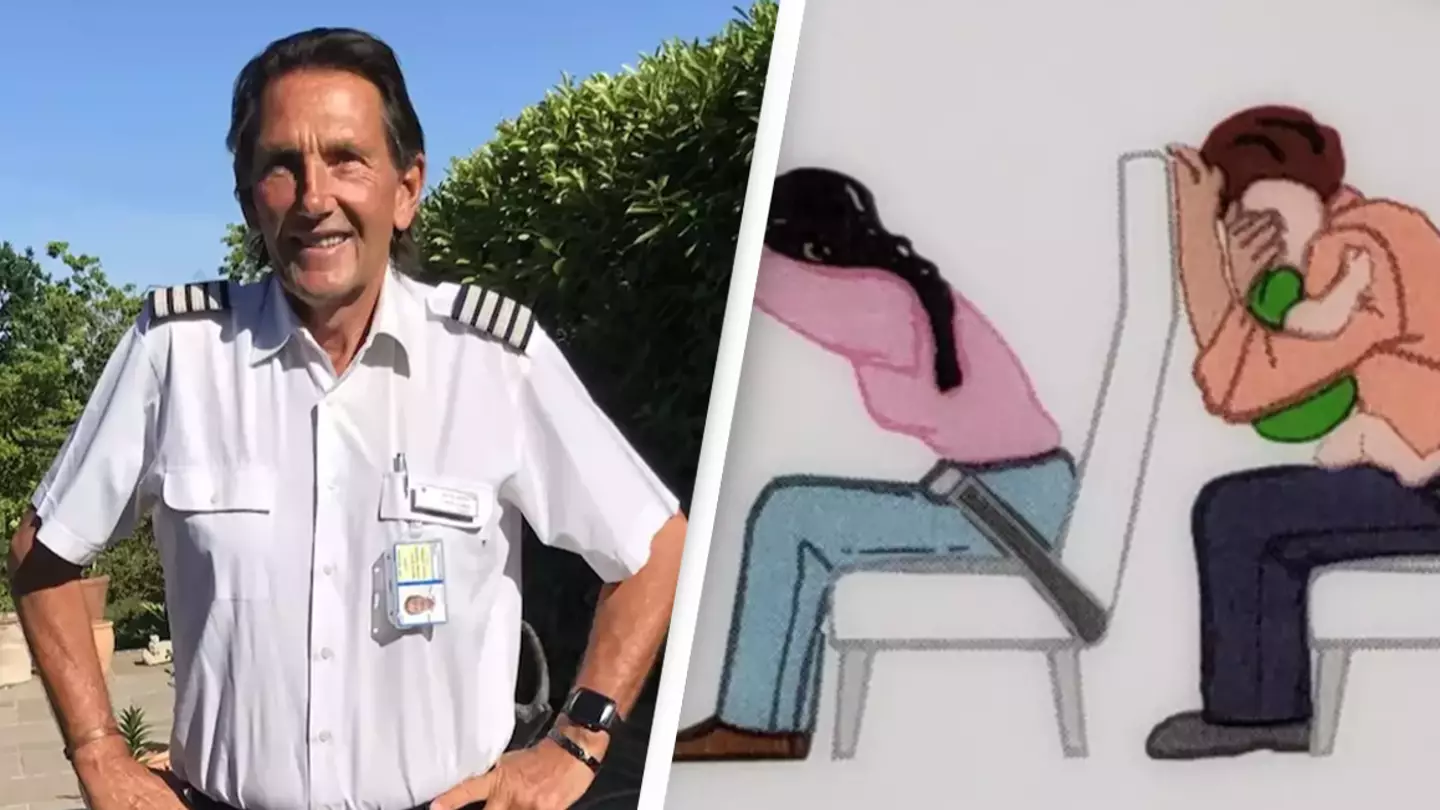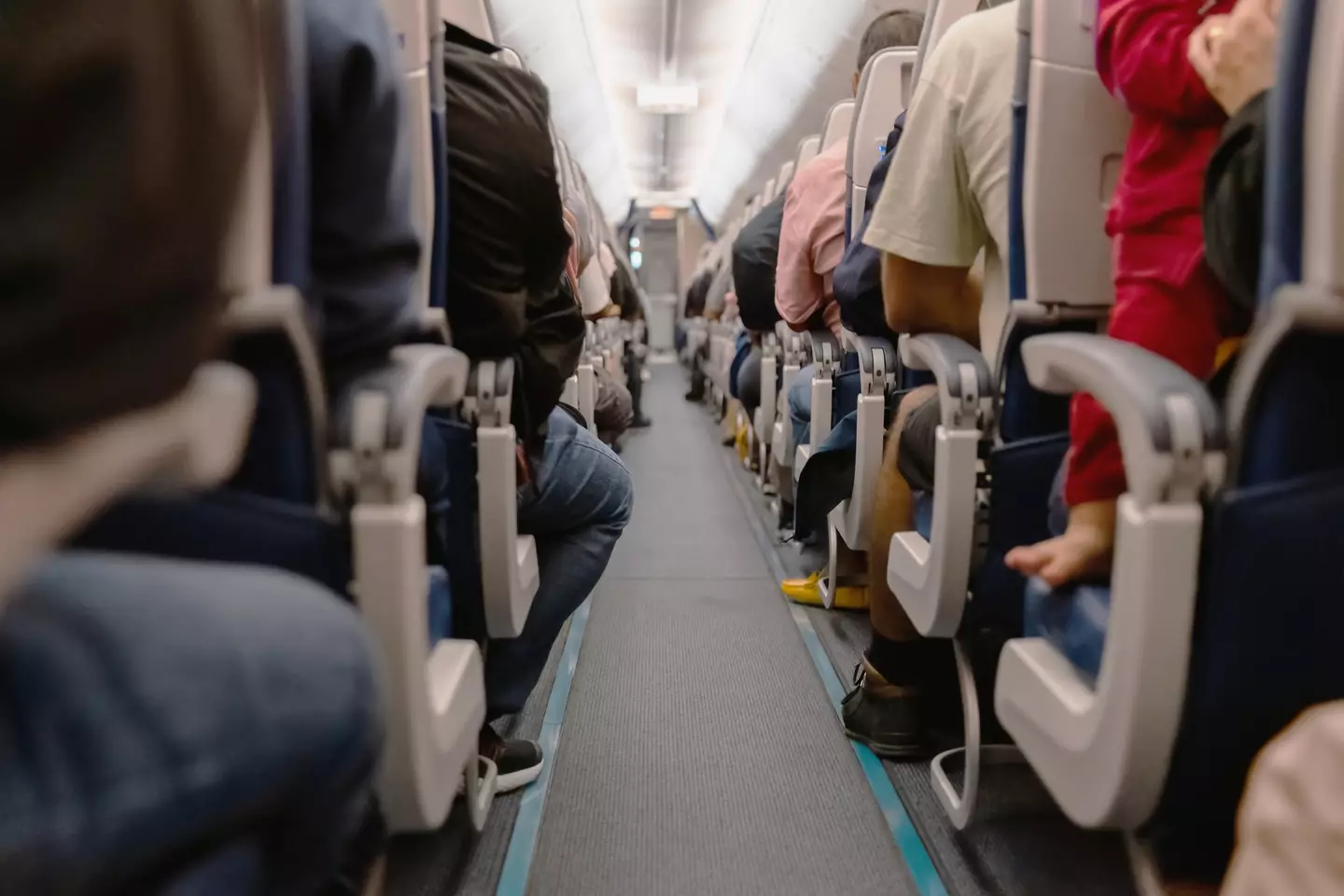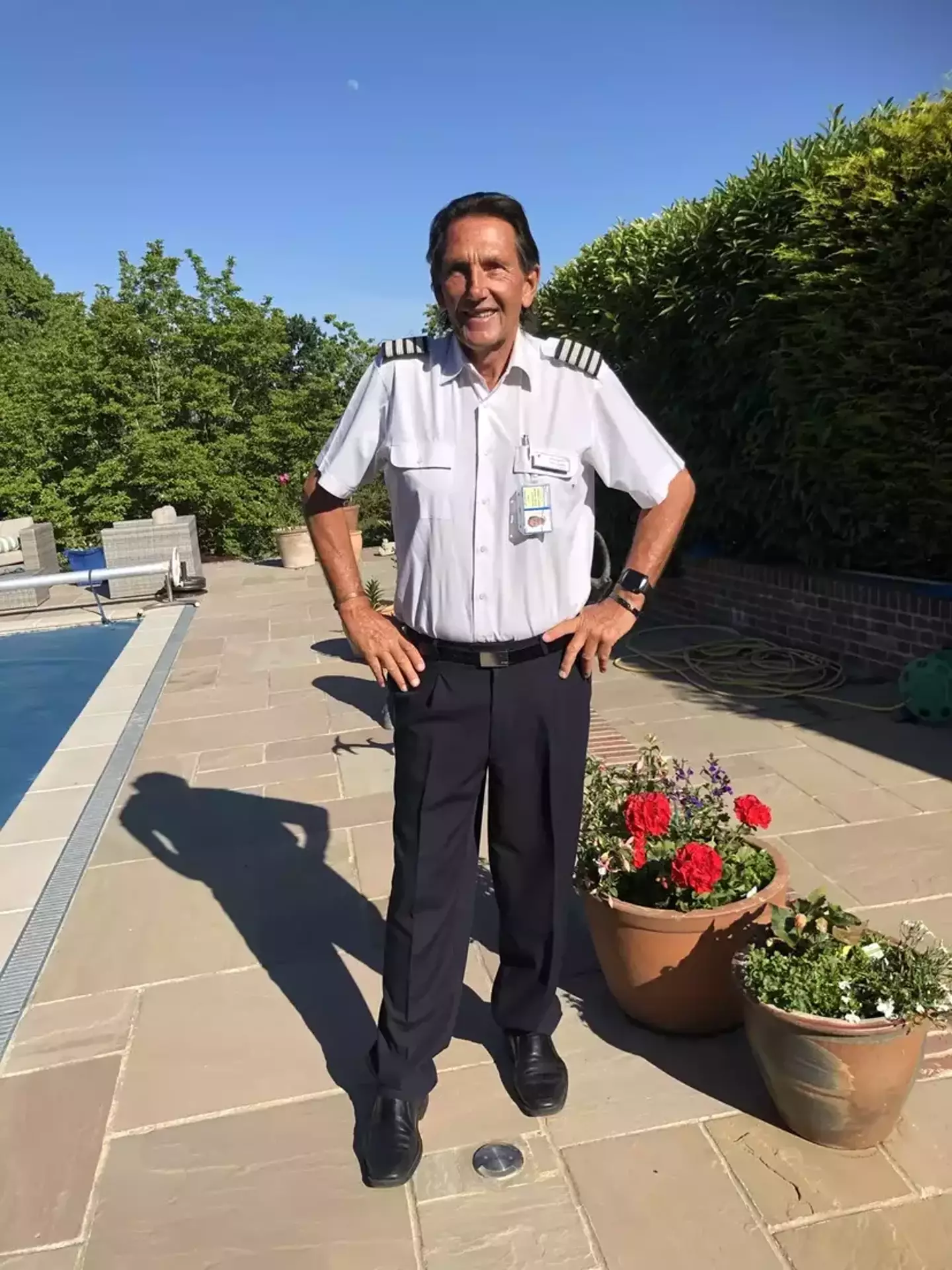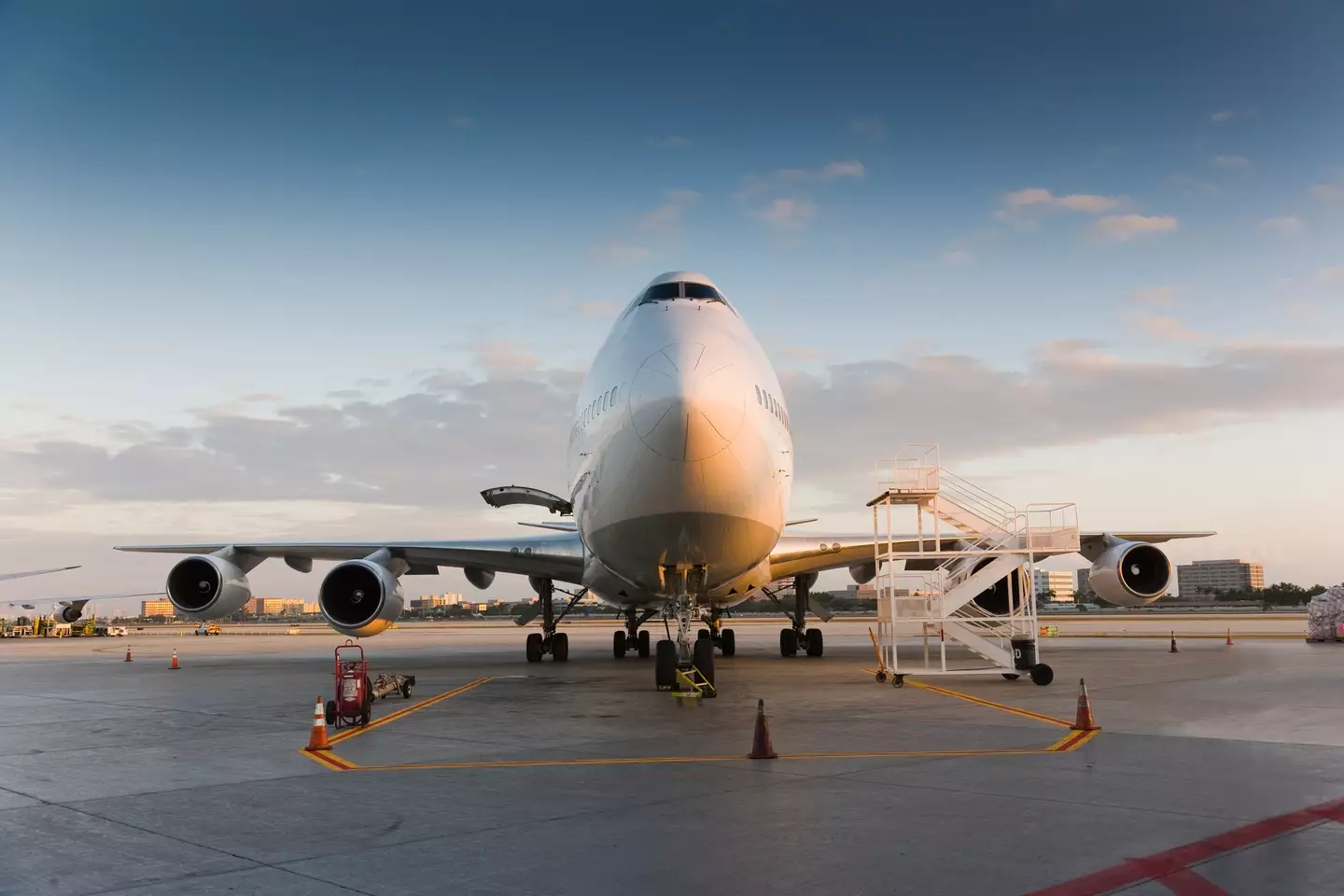
An experienced Boeing 747 pilot has revealed a question that has undoubtedly plagued many people who travel by air.
Anyone who has sat through the safety briefing on a flight will be familiar with the 'brace' position - passengers are instructed to put their hands behind their head and then curl down so their head is between their knees.
Fortunately, most of us have not been in a position where we would actually have to use the brace position.

Advert
Nonetheless, it's that much of a feature of safety briefings that for frequent flyers it is practically drilled into you.
There have been a lot of rumours and speculation about why exactly the position is adopted in that precise.
Some of these rumours even claim that it's designed to make sure that passengers are killed as quickly and painlessly as possible, or that the position helps to preserve teeth for identifying bodies from dental records.
Pilot Nick Eades shared the real reason that airlines have adopted the brace position.
Advert
And don't worry, it's not to kill you quicker or to preserve your teeth - it's actually a safer position to adopt in the event of a crash.

Eades explained: "What you're trying to do is to stop people breaking their necks in a big impact. You're just trying to get the body into a position that's going to suffer the least damage."
He added: "It's like whiplash - you're trying to avoid that sudden movement of the head, which can result in serious injury, if not death.”
Advert
Whiplash is where the head is jerked forward suddenly by a crash which can cause serious neck and spinal injuries.
Tucking your head up means that you are in a position which is less likely to see your head thrown violently forward if you stop suddenly.
Eades said he'd only had to use the command on a 'couple' of occasions during his long career.

Advert
He said: "I've had a couple where we had problems with the landing gear, and the cabin crew shouted to all the passengers 'brace, brace!'."
The pilot added that the command is falling out of use, saying: "Now, if you think about it, I would say at least half - probably three-quarters - of passengers on the aeroplane don't speak English as a first language."
Explaining, he said: "It took a long time for the aviation world to realise if you're suddenly thrown into an emergency situation and people start shouting 'brace' at you, you might think, 'what the hell do they mean?'
"They'll replace it with 'heads down, hands over your head. At least that gives somebody in probably the most stressful position they'll ever be in in their lives something to do.”
